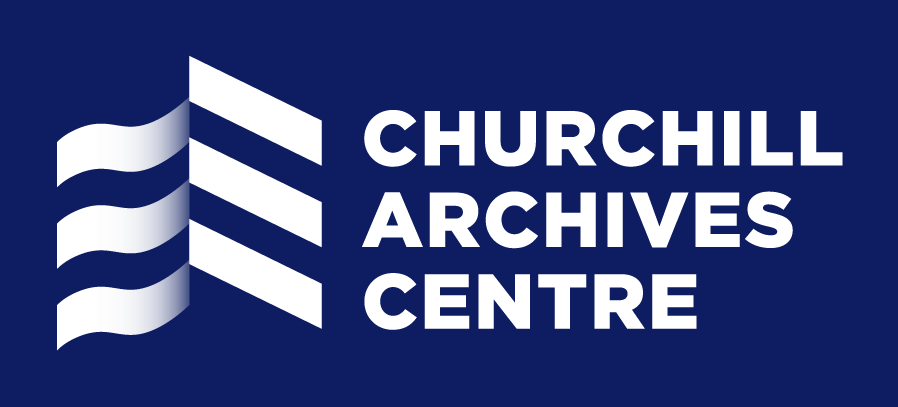Document Comparison and Synthesis
Exercise 2:
Haig and his Critics
Lord French had commanded the British Expeditionary Force (that part of the British army available for operations in Europe) at the start of the war, but had been forced to retreat by the rapid German advance in 1914, and he had been replaced by Haig at the end of 1915. French was still an influential figure, though: he was created a Viscount in 1916 and commanded the British Home Forces.
Document B: Memorandum by Lord French to the War Cabinet, 1917
Read his memorandum carefully, and answer the questions that follow:
THE PRESENT STATE OF THE WAR, THE FUTURE PROSPECTS, AND FUTURE ACTION TO BE TAKEN.
“Having regard to the fact that, after more than three years of war, no decision has been reached, how should the Allied forces in the field be best directed and employed to bring about a satisfactory and lasting peace?
“The Prime Minister (Lloyd George), in his address at the meeting of the War Cabinet on the 11th instant, laid down four separate alternatives which in his view presented themselves for consideration.
- A complete concentration on the Western Front, as advocated by Field Marshal Sir Douglas Haig in his memorandum of October 8th.
- The adoption of the proposals in (1), but leaving the forces which are now operating in other theatres where they are, such forces to do what is possible with the means now at their disposal.
- That which was termed by the Prime Minister the “Petain scheme”, namely to stand everywhere on the defensive, only resorting to such offensive action as will render the defence effective. To await the development of the forces of the United States; and in the meantime to rely upon a drastic economic war to weaken the enemy.
- A concentration of force on some theatre of operations other than the Western Front, against one or other of Germany’s allies; for instance, in Syria and Palestine against Turkey, or on the Italian front against Austria.
“I propose to divide this memorandum into two parts. In the first I will deal with the memoranda of the Commander-in-Chief (Haig) in France and the Chief of the Imperial General Staff (Robertson) in connection with various documents which have been submitted to me. In the second part I will express the opinion I have formed as to the reference submitted to me.
“The Commander-in-Chief in France advocates the first alternative, and his views are fully expressed in his memorandum of October 8th addressed to the Chief of the Imperial General Staff, who, in his minute to the War Cabinet of October 9th, practically concurs in these views. On a close examination of Sir Douglas Haig’s memorandum I find that some statements are made and conclusions drawn from them which I think are open to question.
“On the opening page he says that “the first factor to be taken into account is that not only Germany but her Allies rely primarily and practically entirely upon the invincibility of the German Army to secure for them favourable terms of peace.”
“In reply to this I have to remark that Germany is carrying on an economic war with her U-boats, upon which she has publicly stated she relies for victory. And further, by the many air raids which she is sending she hopes to spread such alarm and despondency throughout the population of this country as will bring about favourable terms of peace. I think we have every reason to believe that she trusts to these methods quite as much as to the invincibility of her Army.
“On page 2 the Field Marshal says that the first question to be answered is as follows:- “Are we justified under the conditions postulated by the Prime Minister in basing our plans on a belief in the feasibility of overcoming the resistance of the German Army by direct attack before the endurance of the British Empire and its Allies remaining in the field breaks down?”
“The “belief” referred to in Sir Douglas Haig’s query has really been at the root of our military policy ever since the beginning of 1916. That policy was commenced in practice with the battle of the Somme on the 1st July, 1916, and has been continued ever since. We have waged war on these principles for 15 months. We know the results and can test them.
“Do they show that we are still justified in retaining this belief and continuing to act on these principles?
“I will endeavour to answer this question later, so far as my own judgment goes.”
—Reference: Churchill Papers, CHAR 8/185/52-4. Crown copyright.
Questions
1. Which four of the following statements most accurately sum up the four alternatives French says were put forward by the Prime Minister?
- Britain can rely on naval blockade to defeat Germany
- Britain can afford to do little or nothing
- Allied forces should be withdrawn from other fronts and sent to France and Belgium
- The Allies should prepare for a German attack in the west
- The Allies should launch a major attack in the west
- The Allies should do nothing major until American forces arrive in strength
- The British and French should attack in force before the Americans arrive in large numbers
- The British should leave the French to their defensive tactics
- The war can best be won by knocking out one of Germany’s allies
- The British should use the troops on the Western Front, suitably reinforced, to win the war
2. Explain what is meant in alternative (3) by the “Pétain Scheme”.
3. How convincing is French’s objection to Haig’s assertion that “the first factor. . . terms of peace”?
4. Which of the following is the most accurate paraphrase of Haig’s question “Are we justified . . . breaks down?”
- Are we right to believe that the Allies can withstand German attack without breaking down?
- Are we right to believe that the Allies can attack and defeat the German army in the field?
- Are we right to believe that there is no possibility of the Allies withstanding a German attack?
5. What does French mean by
- “The “belief . . . 1916”?
- “We know the results and can test them”?
- Comment on the tone and language of this section of French’s memorandum.
6.
a) In what ways is this document good evidence of the problems facing Lloyd George and Haig by late 1917?
b) In what ways should a historian use this document with care before making judgements about the situation facing Lloyd George and Haig by late 1917?
7. Read the following extracts from the diaries of Sir Maurice Hankey, who was Secretary to the War Cabinet and a strong supporter of Haig. In the light of these extracts how (if at all) should we change our evaluation of French’s memorandum?
Document C: Hankey’s diary for 24 October 1917
“Lord French asked me to call about tea-time. He said that the P.M. had sent for him and had suggested that he should soften some of the phrases to make them less offensive to Robertson & he had agreed to do so. At the Prime Minister’s suggestion he asked for my evaluation in this. I spent an hour or so with him & Henry Wilson doing this. From what Henry Wilson said, while Lord French was out of the room, it was clear that French’s reason for agreeing to alter his report was that he wanted to remove the impression that he was bitter against Robertson. He told me however that he had declined to accede to the Prime Minister’s proposal that he should praise Haig’s tactical handling of the situation. He said that Haig was always repeating the mistake he had urged French himself to make at Loos, and had reproached him for not making, namely to keep his men too much in the front line. In discussing the report he frankly admitted that his object was to get rid of Robertson, whom he accuses of not being up to the job of C.I.G.S. (Chief of the Imperial General Staff, which co-ordinated the military efforts of Britain and the Empire) and of merely repeating what Haig dictates. He hinted, but less confidently, that Haig ought to go too. “We shall do no good” he said “until we break down the Haig-Robertson ring”. There was envy, hatred and malice in the old boy’s heart as he spoke. With the knowledge I have of the inner & seamy side of this incident I could, by raising my little finger smash Lloyd George, his Government & Lord French! But this would end the war in a manner most unfavourable to us. . . . .My job is to try and push the Govt. machine along until the war is brought to a successful termination, and I shall not allow myself to be drawn into politics, of which however some knowledge is unavoidable to one in my position.”
—Reference: Hankey Papers, HNKY 1/3. Reproduced with the permission of the Master and Fellows of Churchill College.
Document D: Hankey’s diary for 26th March 1918
“After the Cabinet Lloyd George asked French (who is attending regularly), and myself and Winston Churchill to stay behind and discuss the situation. French was most bitter about Haig, who, he said, was no judge of men, had surrounded himself with stupid people and bad commanders. . . . He considered Haig had badly let down the Army in shattering it in the hopeless Flanders offensive.”
—Reference: Hankey Papers, HNKY 1/1. Reproduced with the permission of the Master and Fellows of Churchill College.

